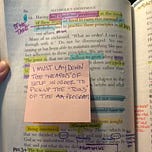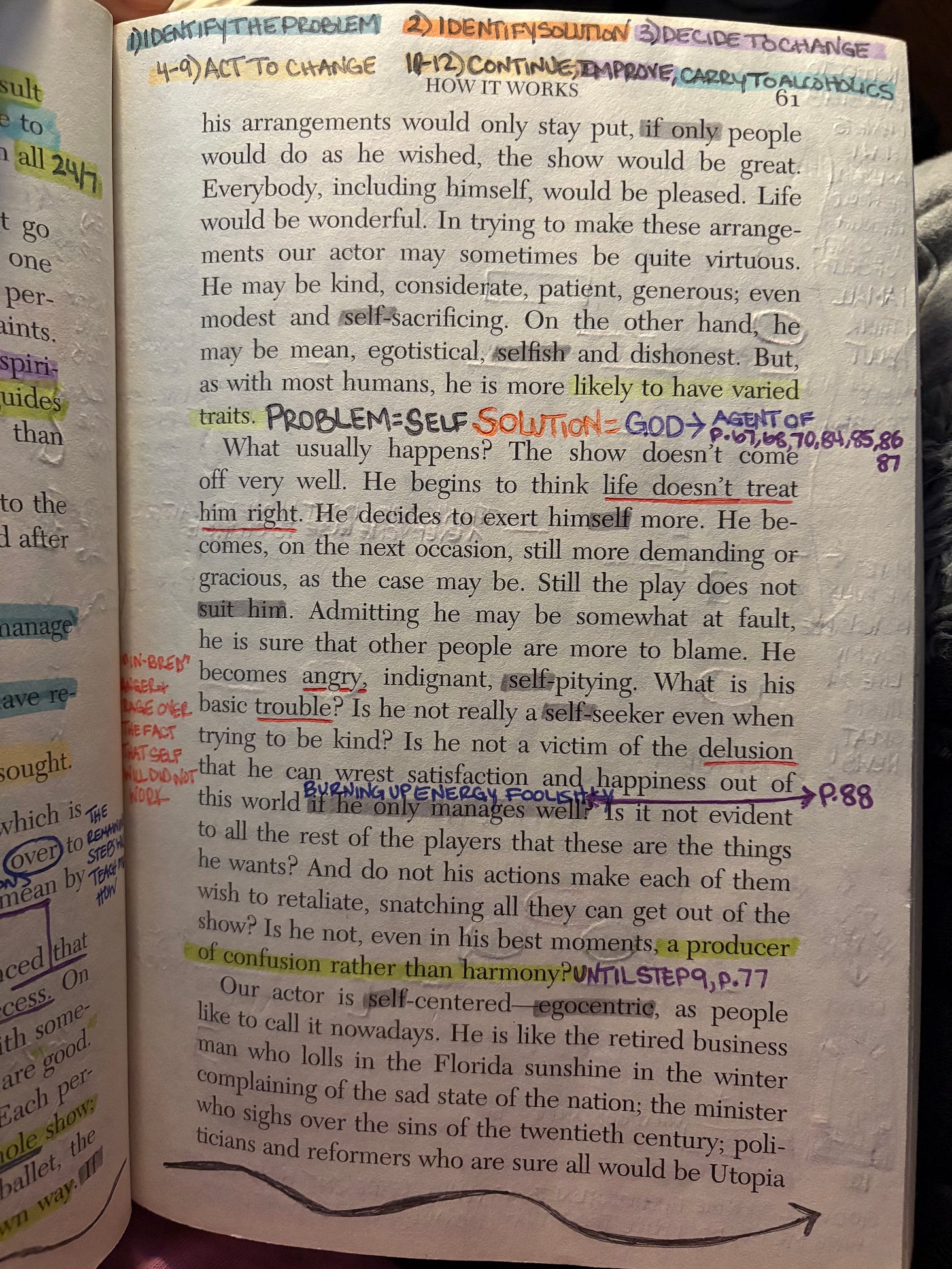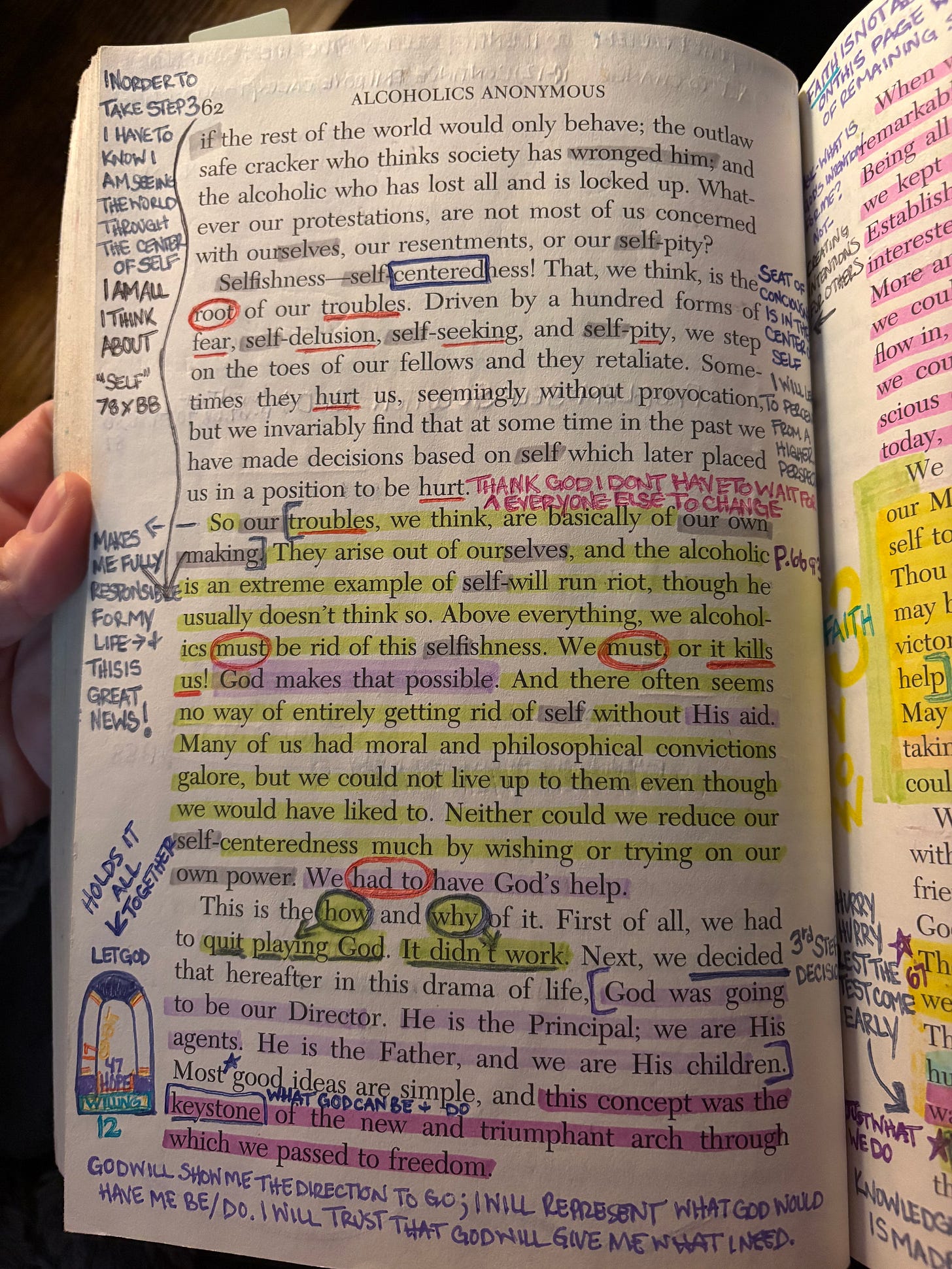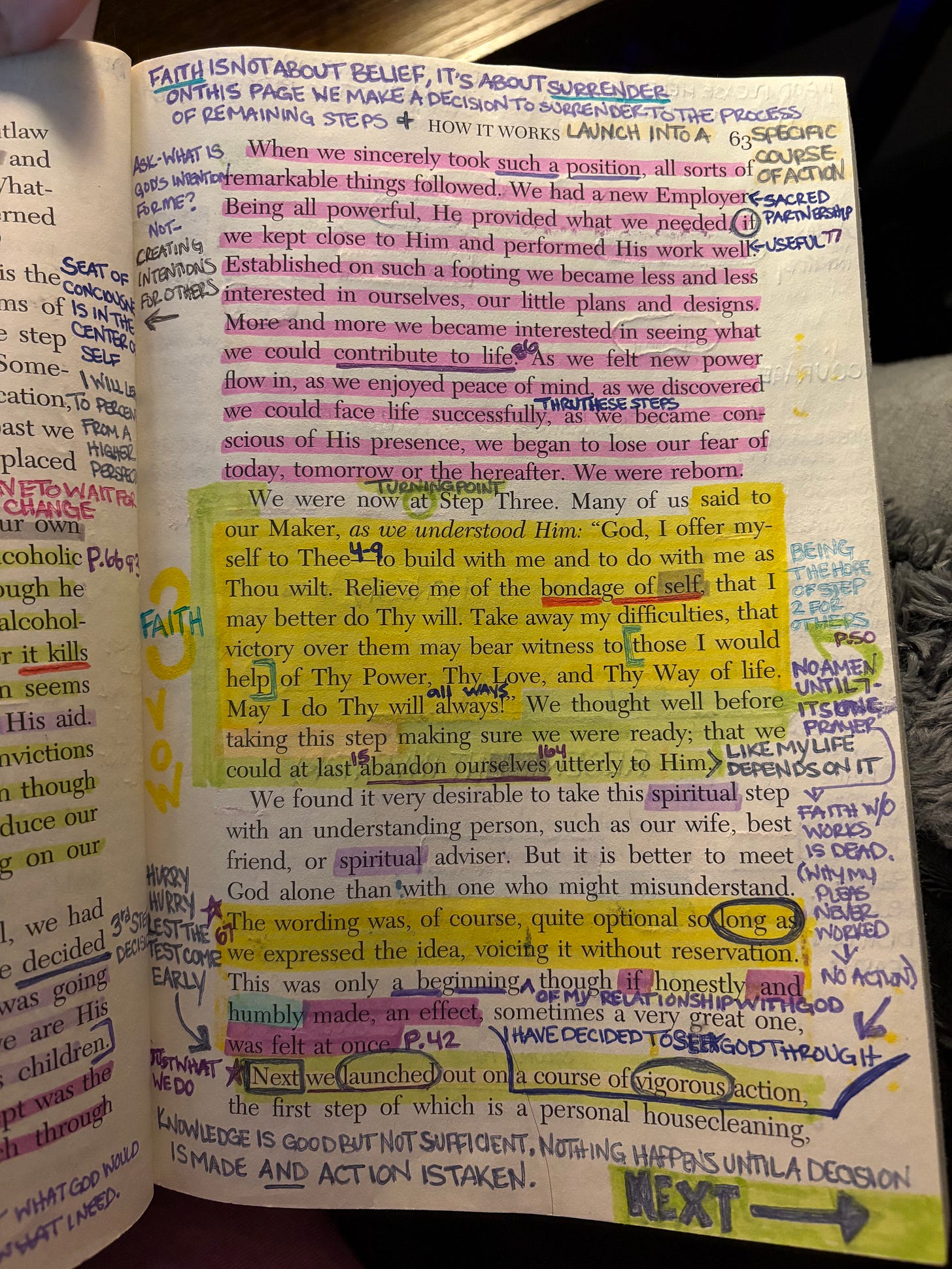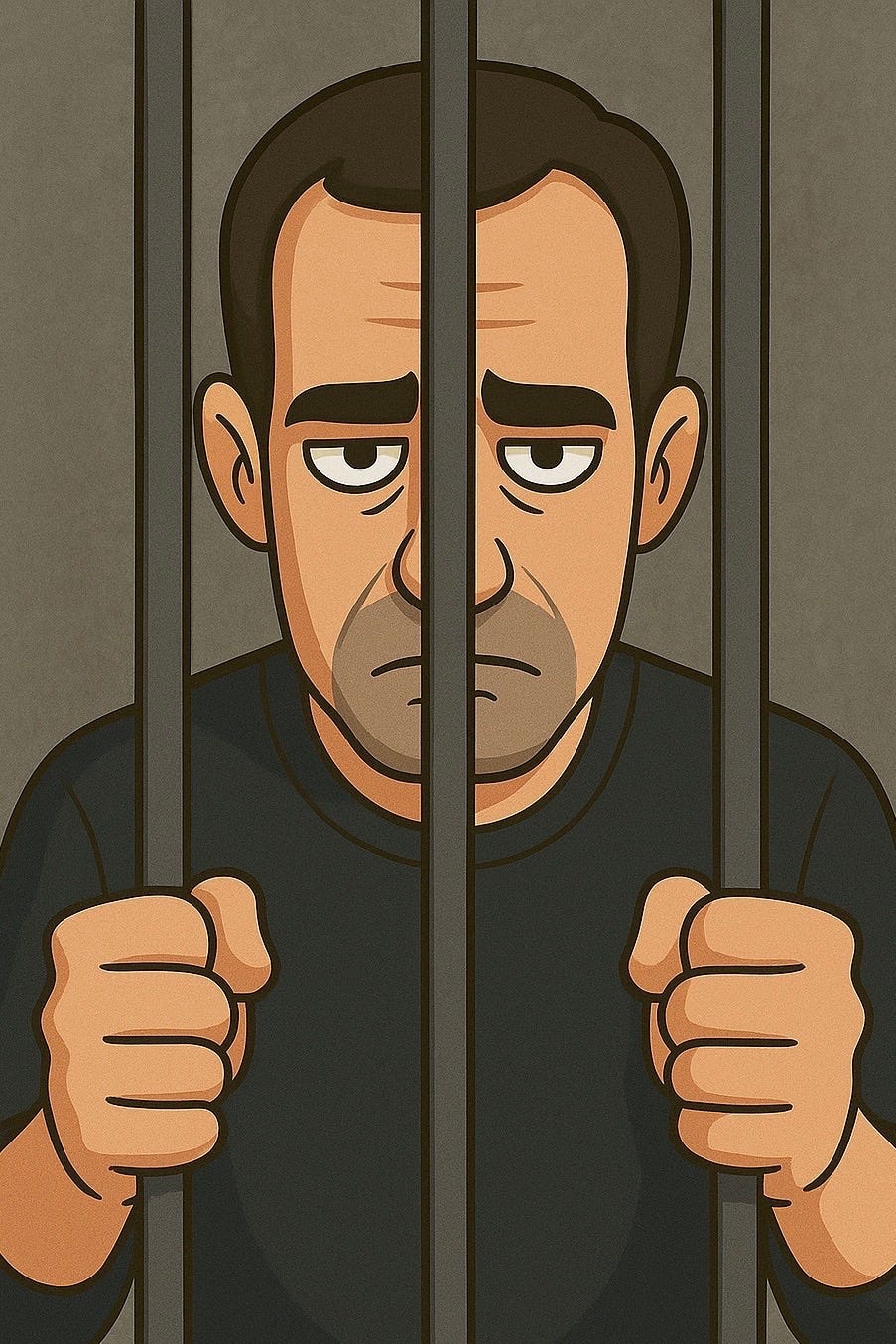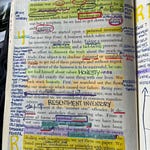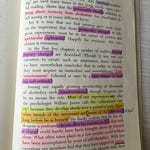Bedevilments: First Person; p.52
I have to ask myself why I shouldn’t apply to my human problems the same readiness to change my point of view.
I am having trouble with personal relationships, I can’t control my emotional nature, I am prey to misery and depression, I can’t make a living, I have a feeling of uselessness, I am full of fear, I am unhappy, I can’t seem to be a real help to other people – was not a basic solution of these bedevilments more important than whether I should see news reels of the future?
Actor: First Person; p.60
The first requirement is that I be convinced that my life run on self-will can hardly be a success. On that basis I am almost always in collision with something or somebody, even though my motives are good. I try to live by self-propulsion. I am like an actor who wants to run the whole show; I am forever trying to arrange the lights, the ballet, the scenery and the rest of the players in my own way. If my arrangements would only stay put, if only people would do as I wished, the show would be great. Everybody, including myself, would be pleased. Life would be wonderful. In trying to make these arrangements I may sometimes be quite virtuous. I may be kind, considerate, patient, generous; even modest and self-sacrificing. On the other hand, I may be mean, egotistical, selfish and dishonest. But, as with most humans, I am more likely to have varied traits.
What usually happens? The show doesn’t come off very well. I begin to think that life doesn’t treat me right. I decide to exert myself more. I become, on the next occasion, still more demanding, or gracious, as the case may be. Still, the play does not suit me. Admitting I may be somewhat at fault, I am sure that other people are more to blame. I become angry, indignant, self pitying. What is my basic trouble? Am I not really a self seeker, even when trying to be kind? Am I not a victim of the delusion that I can wrest satisfaction and happiness out of this world if I only manage well? Is it not evident to all the rest of the players that these are the things I want? And do not my actions make each of them wish to retaliate, snatching all they can get out of the show? Am I not, even in my best moments, a producer of confusion rather than harmony?
I am self-centered — egocentric, as people like to call it nowadays. I am like the retired businessman, who lolls in the Florida sunshine in the winter complaining of the sad state of the nation; the minister who sighs over the sins of the 20th century; politicians and reformers, who are sure all would be Utopia if the rest of the world would only behave; the outlaw safecracker who think society has wronged him; and the alcoholic, who has lost all in his locked up. Whatever my protestations, am I not concerned with myself, my resentments, or my self-pity?
Selfishness — self-centeredness! That, I think, is the root of my troubles. Driven by one hundred forms of fear, self-delusion, self-seeking, and self-pity, I step on the toes of my fellows, and they retaliate. Sometimes they hurt me, seemingly without provocation, but I invariably find that at some time in the past, I have made decisions based on self, which later placed me in a position to be hurt.
So my troubles, I think, are basically of my own making. They arise out of myself, and I am an extreme example of self will run riot, though I usually don’t think so. Above everything I must be rid of this selfishness. I must, or it kills me! God makes that possible. And there often seems no way of entirely getting rid of self without His aid. I have moral and philosophical convictions galore, but I cannot live up to them, even though I would like to. Neither can I reduce my self-centeredness much by wishing or trying on my own power, I have to have God’s help.

